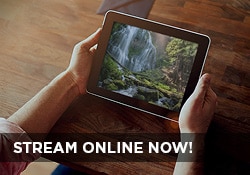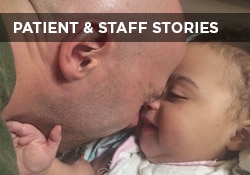This website uses cookies so that we can provide you with the best user experience possible. Cookie information is stored in your browser and performs functions such as recognising you when you return to our website and helping our team to understand which sections of the website you find most interesting and useful.

Susan E. Mazer, Ph.D. Blog
Thoughts and ideas on healthcare
Hi, and welcome to my blog! I'm Susan E. Mazer -- a knowledge expert and thought leader on how the environment of care impacts the patient experience. Topics I write about include safety, satisfaction, hospital noise, nursing, care at the bedside, and much more.
Like Politics, The Patient Experience is Local
February 23, 2018
This saying is often used to reinforce community participation and civic activism.
The same is true for the patient experience. It’s all local.
It is where the patient is; it is the patient’s mind and body; it is in the patient’s line of sight and field of interest, and it is everything that a patient hears. It is in the moment, immediate, and relevant.
Mandating the Patient Experience
Healthcare organizations may try to nationalize their values, objectives, corporate missions, and employee engagement activities.
However, each of these things is “lived” on the ground by each individual, according to his or her direct circumstances.
For example, “quiet hospitals” can be mandated. But for staff confronting a code in a busy ER, the mandate is irrelevant, if not dangerous. And, for the patient lying in the dark, the “quiet” can be isolating and frightening.
How often linens should be changed can also be mandated to be on an as-needed basis. But for patients suffering from colitis or any kind of bowel disorder, the need to change linens may be frequent. And having to ask is embarrassing.
Relational niceties, such as introducing yourself by name, giving deference to visitors who are lost, can also be effective — if staff members are sincere and genuine.
So, what controls relationships is complex, rather than simple. It is local, rather than national.
The patient experience movement has become a national, and even global, phenomenon. However, the experience for individual patients is personal, fully subjective, and is the only reality they know.
Patients’ Experience of Pain
Researchers at Centre for Health and Social Care Research, Birmingham City University in the U.K. did a study that looked at the impact of chronic pain being denied or disbelieved. They found that it made everything worse, pointing to three outcomes: stigma, the experience of isolation, and the experience of emotional distress.
And yet, complaining about pain and yielding to it is considered a weakness in our society.
That has never been more evident than at the 2018 Winter Olympics going on right now in South Korea. Athletes who win medals despite serious injury are celebrated, without consideration of the price they may pay in the future.
Patients share their experience and how they are feeling by talking to their caregivers. Many times, though, words are not enough to actually accurately describe how they are experiencing pain.
It is not uncommon, for example, for patients to understate their discomfort and for caregivers to accept what they say as accurate. This happens because language can fail to communicate what’s actually happening.
In a time when evidence-based medicine has become the standard, a patient’s experience that is not considered “medical” can easily be disregarded or dismissed.
What’s more, medical histories are so often inadequate because the questions reduce a whole patient and his or her history down to a list of symptoms, diagnoses, and concerns that can be listed on a form.
Embrace the Whole Patient
If healthcare providers are going to actually embrace the whole patient and be invested in patients’ long-term health, it’s important to listen and ask questions in a way that encourages patients to share what is going on for them.
Assumptions should not be made as to what a patient means or says without asking more questions. It’s also crucial to remember how one person uses words may be different than how another person uses them.
Thus, no matter how much we try to generalize and nationalize it, the patient experience is local.
P.S. If you like this post, please do me a favor and share on LinkedIn, Twitter, Facebook, etc. Also to get automatic notices when a new post is published, please subscribe. No spam – just great content. Thanks!











